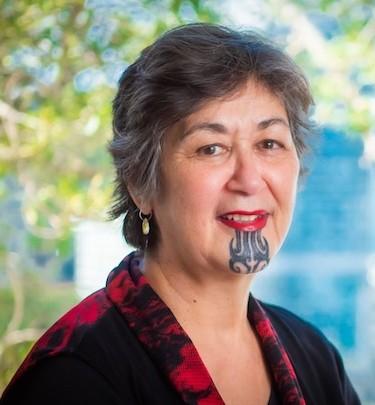
The government’s proposed changes to Early Childcare Education (ECE) licensing requirements will be detrimental to the learning and engagement of all tamariki if it ignores decades of research, says Associate Professor Mere Skerrett (Ngāi Tahu, Waikato/Maniapoto, Te Arawa).
Regulation Minister David Seymour has signalled that he intends to dramatically streamline Early Childcare Education (ECE) licensing criteria, including removing the legal requirements for the ECE sector to acknowledge Māori as tangata whenua, to support children's right to cultural confidence and teach about Te Tiriti o Waitangi. A review of the ECE requirements recommended to remove, merge or change three-quarters of the 98 licensing criteria, keeping only 26.
Mere, who is an ECE expert, says the move would be a retrograde one that flies in the face of substantial research showing the benefits of culturally-informed ECE delivery and of tamariki Māori seeing themselves reflected in their environment. “Scholars have long demonstrated how cultural recognition improves academic outcomes and personal wellbeing for Māori children,” says Mere.
“This isn’t just a bureaucratic change, it’s about removing the ability of tamariki to see their language, their mana, their whakapapa respected at the very beginning of their formal learning journey.”
Mere believes all children will also be negatively impacted by the legislation. “The decision doesn’t just harm Māori, it robs all our learners of a meaningful understanding of Te Ao Māori which leads to cultural ignorance, division and the harmful isolation of people who won’t have a pathway to knowing how they connect to Te Moana Nui a Kiwa.”
She says Pākehā children deserve to know the story of Aotearoa - “not just a white-washed version. Exposure to other worldviews strengthens children' s empathy, critical thinking and their civic learning. A mono-cultural education impoverishes all learners because they have no way to critically engage with the world, or even know themselves.”
“We have a wonderful opportunity in Aotearoa to promote bi-culturalism, multi-culturalism, multi-lingualism starting with te reo Māori going forward. But there is resistance because the people making the decisions are not looking long term to where we could be and how to get there.”
“The studies show that environments that support high levels of collaboration and identity development – that the children grow up without fear of ‘other.’ The proposed legislation is a denial of who we are as a nation – richly diverse, grounded in te Tiriti and stronger because of it. What is happening with these shifts is a weakening of our social structures. It will further harm race relations.”
Mere says removing these protections isn’t neutral – it’s a political act that says one culture should dominate. “Erasing Māori perspectives from the start of a child's early learning journey lays the foundation for deep cultural misunderstanding and will widen the social divisions later in life.”
Arguments that some ECE’s are private businesses and can do what they like, do not wash either. Mere says ECEs that receive public funding have a legal and moral duty to honour the nation’s foundational agreements. “They cannot opt out arguing they are private businesses because that view fails to recognise their public responsibilities and their ethical duties to support an inclusive and equitable society. Public money comes with public responsibility. If you are educating tamariki/mokopuna in Aotearoa, you are part of the nation’s Treaty promise. It’s as simple as that.”
“I want to draw on what Sir James Henare said to the Waitangi Tribunal in 1985, ‘We’ve come too far, not to go further. We’ve done too much, not to do more.’” She believes this is a powerful rallying call for our advancement as Māori and for Treaty justice. “It’s an on-going journey; strengthening our resolve, our commitment to Māori rights and the refusal to retreat in the face of current political posturing.”
“In ECE, we strive for equitable outcomes for our tamariki. The Treaty is not a threat—it is both a promise and a premise: a promise affirming rangatiratanga Māori, with a premise grounded in honour and goodwill, guiding our collective journey, our Kotahitanga.”